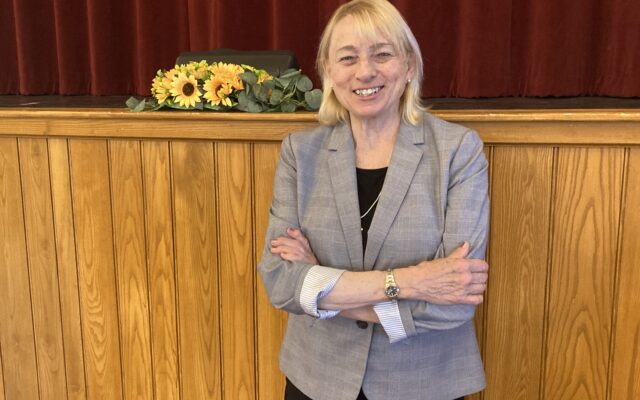
What we learned about Janet Mills in a book drawing from her pandemic journal
By Michael Shepherd, Bangor Daily News Staff
Gov. Janet Mills has been on the book circuit over the last few months, including on Thursday, when she appeared on MSNBC’s “Morning Joe” and ended the day with an event hosted by a Bangor bookstore.
It is not the governor’s book, but it is her story. Journalist Shannon A. Mullen chronicles Mills’ pen-pal relationship with homesteader Ashirah Knapp of Temple during the early part of the pandemic in her book “In Other Words, Leadership.”
It draws on the letters between the two women and about 50 pages of the Democratic governor’s. Mullen met Mills at a dinner party hosted by their mutual friend, the painter Jamie Wyeth, and the author said her aim was to tell a story about positive moments and the power of connection during an isolating era. There are still some interesting tidbits on Mills’ life.
The context: The governor’s journal gives a sense of what it was like to govern in isolation. In March 2020, she often worked from a small office in the Blaine House and ate peanut butter and jelly sandwiches, relying on close friends and family that she talked to nearly every day.
“When are the locusts coming?†Mills remembered asking staff in her journal after the Jay paper mill explosion in April 2020.
Voluntarily or not, the experience was isolating. In September 2020, Mills wrote that she was going to Baxter State Park to spend 24 hours without cellphone or internet access to “perhaps find some peace of mind.” The next month, she and key staffers took a retreat to Acadia National Park to work on a high-court nomination.
While quarantining in the Blaine House that December after potential exposure to the virus, Mills said she was “alone upstairs all day†in “a pretty palace.â€
Mills on Trump: Politics crept into her journal at a time of deep polarization. After the riots of Jan. 6, 2021, she called then-President Donald Trump “simply repulsive.” She harshly criticized him during their overlapping tenures, and he once called her a “dictator” for her pandemic policies, but the criticism she levied in her journal was stronger than what she said out loud.
“I cannot think of anyone in public office who has demonstrated less dignity, less integrity, and who has had so much greater a love of self than of the nation,” Mills wrote then.
The takeaway: This is not a critical book. Keen observers won’t learn a lot of new stuff about the Mills administration itself and its official actions during the pandemic. There is still a human story here about the correspondence between Mills and Knapp and about what it is like to make decisions during a tough time.